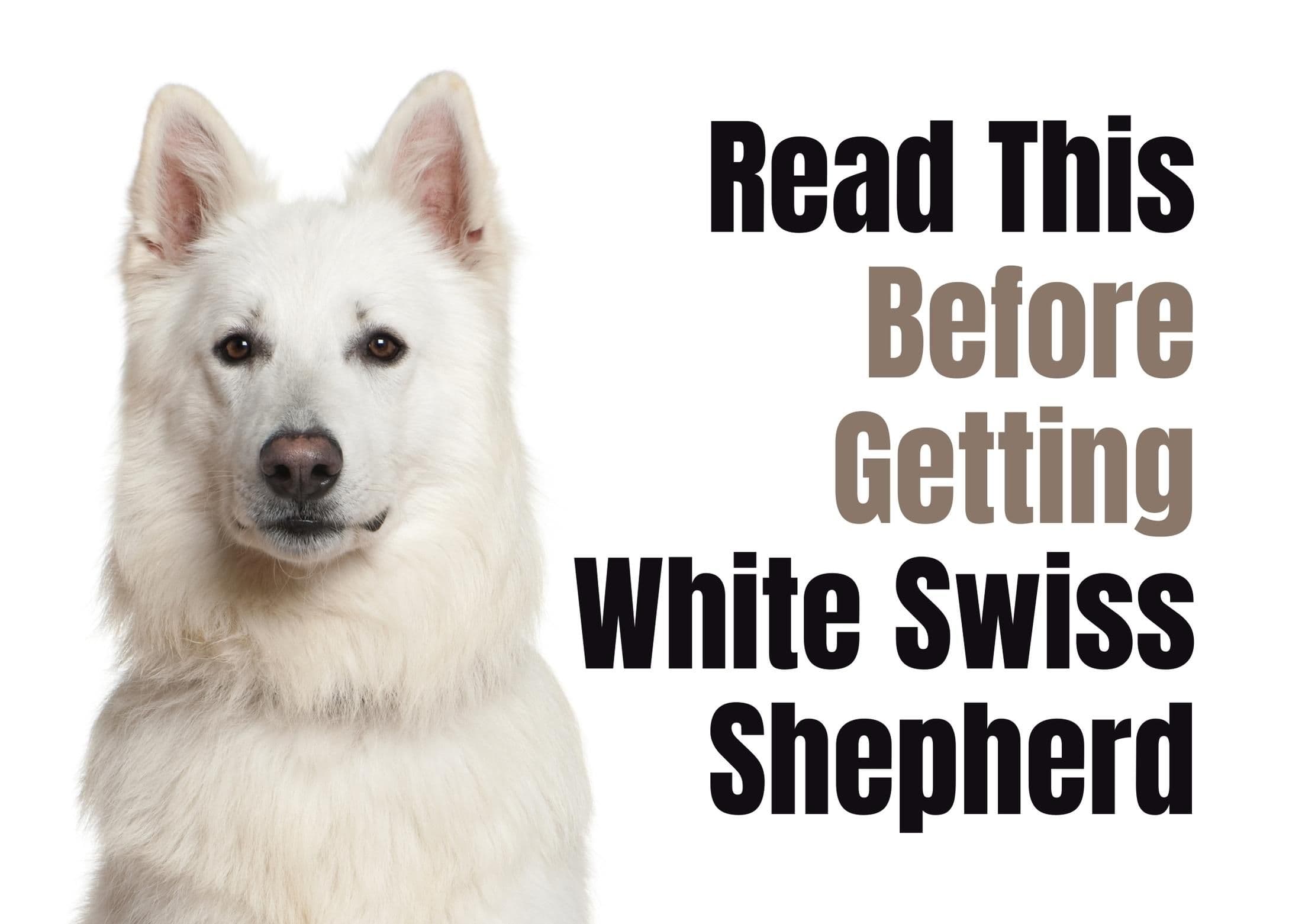What to Think About Before Getting a White Swiss Shepherd Puppy

Thinking about bringing home a White Swiss Shepherd? You're in for a loyal, intelligent, and affectionate companion — but there are a few things you should know before making the leap.
We’ve spent a lot of time around working breeds like the German Shepherd and the White Swiss Shepherd, and while they may look similar, their personalities are pretty different. Here’s what makes the White Swiss Shepherd such a unique (and often misunderstood) breed — and what life with one is really like.
Calm, Loyal, and Sensitive — Not a Guard Dog
White Swiss Shepherds are often mistaken for white German Shepherds, but they’re their own breed with a gentler nature. While they’re alert and will bark if someone pulls into your driveway, they’re not aggressive or naturally suited for police or military work. These dogs are more sensitive and reserved — they want to be with their people, not out on patrol.
That sensitivity makes them incredibly loving and loyal, but also prone to separation anxiety. If you leave them alone for long hours every day, expect some acting out (like digging or chewing). They thrive in homes where someone’s around most of the time and they can be part of the routine.
Smart and Eager — But Gentle Training Only
This breed is seriously smart. They pick up new commands quickly, excel in obedience and agility, and can even be trained as service dogs. But they don’t respond well to harsh training. In fact, they’ll shut down if you use a firm or intimidating tone.
We’ve found that positive reinforcement — treats, praise, games — works wonders. The earlier you start socialization and training, the better. Swiss Shepherds can be a little shy with strangers and skittish in new situations, so building their confidence early is key.
High-Energy Dogs Need Room to Move
If you live in a small apartment and aren’t super active, this may not be the breed for you. White Swiss Shepherds need plenty of space and daily exercise — we’re talking long walks, hikes, or play sessions in a fenced yard. Without it, they get bored and frustrated, which leads to destructive behavior.
They’re happiest in homes with active families who want a dog to join in on all the adventures.
Great with Kids and Other Pets
One of the best things about White Swiss Shepherds? They’re fantastic with kids. They’re gentle, playful, and seem to instinctively know how to behave around little ones. We’ve seen them happily join in on backyard games, always careful not to knock anyone over.
They’re also usually great with other pets — especially if raised with them. A bit of early socialization helps avoid any aloofness with unfamiliar dogs, but aggression is rare. Their friendly nature really shines once they feel secure.
Grooming: Gorgeous Coat, Lots of Shedding
Let’s talk fur. These dogs have a beautiful white double coat that was built for cold Swiss winters — and it sheds. A lot. All year, not just seasonally. You’ll need a solid grooming routine and a good vacuum.
Brushing 3–4 times a week really helps manage the shedding and keeps their coat healthy. Add in regular nail trims, ear cleans, and dental care, and you’re good to go. Bathing doesn’t need to be frequent unless they get super dirty.
If you’ve got allergies or hate dog hair on your clothes, this isn’t the breed for you.
Health: Know What to Watch For
Like many purebreds, White Swiss Shepherds can be prone to a few health issues. The most common include:
- Hip and elbow dysplasia
- Bloat (gastric torsion) — a true emergency
- Degenerative spinal issues
- Progressive Retinal Atrophy (PRA) — can lead to blindness
Always choose a reputable breeder who health-tests their dogs, and keep up with regular vet visits. A healthy White Swiss Shepherd can live 12–14 years, sometimes more with good care.
Barking and Noise Levels
Swiss Shepherds are naturally vocal, especially when excited or alerting you to something. They’re not as intense barkers as some German Shepherds, but they’re definitely not quiet either. If you live in close quarters or have noise-sensitive neighbors, this is something to think about.
Training can help reduce excessive barking, but you likely won’t be able to eliminate it completely.
The Bottom Line: A Loving, Loyal Family Dog
If you’re looking for a gentle, intelligent, and deeply devoted dog, the White Swiss Shepherd is a wonderful choice. They’re great with kids, friendly with other pets, and easy to train — as long as you’re patient and kind.
They do best in active households with room to roam and people around most of the time. They’re not low-maintenance, but the love and loyalty they give back make it all worth it.
Just be ready for the fur. Lots and lots of fur.
